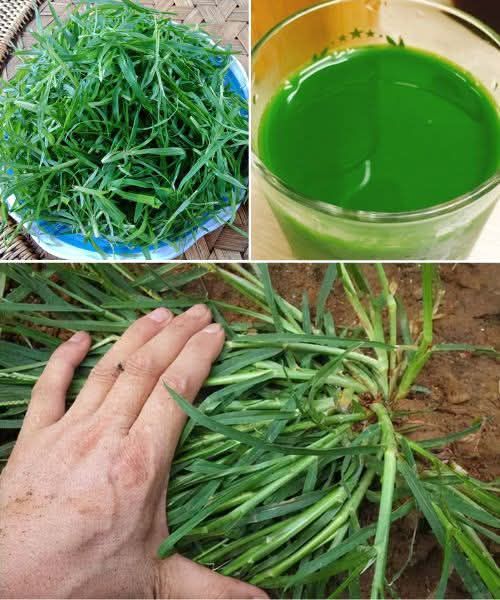ADVERTISEMENT
### The Healing Powers of Medicinal Herbs
Medicinal herbs are renowned for their therapeutic properties. Each herb carries its unique set of bioactive compounds that offer benefits for various aspects of health. These herbs can be used in different forms, including teas, tinctures, capsules, oils, and salves, to address a wide range of ailments. Let’s explore some of the most popular and powerful medicinal herbs that have stood the test of time.
#### 1. **Chamomile: The Calming Herb**
Chamomile (Matricaria chamomilla) has been used for centuries as a calming herb to relieve stress, anxiety, and sleep disturbances. The flowers contain flavonoids and essential oils that act as mild sedatives, helping to relax the nervous system. Chamomile tea is a common remedy for insomnia, indigestion, and anxiety. Its gentle, soothing properties make it a favorite for anyone seeking natural relaxation.
Chamomile has also been used for its anti-inflammatory properties, helping to alleviate conditions like arthritis and muscle pain. It can be applied topically in creams or used in baths to soothe skin irritation and reduce inflammation.
#### 2. **Lavender: A Versatile Healer**
Lavender (Lavandula angustifolia) is one of the most well-known and widely used medicinal herbs. Native to the Mediterranean region, lavender has been used for thousands of years for its calming, antimicrobial, and analgesic properties. Its strong, fragrant aroma is known to promote relaxation and stress relief, making it a common ingredient in aromatherapy.
Lavender is often used to treat anxiety, insomnia, and headaches. It can be consumed as tea or applied topically in oils or creams to reduce skin inflammation, soothe burns, and alleviate muscle pain. Additionally, lavender’s antiseptic properties make it an excellent herb for cleaning wounds and preventing infection.
#### 3. **Peppermint: The Digestive Aid**
Peppermint (Mentha × piperita) is widely known for its ability to ease digestive discomfort. The menthol compounds found in peppermint help to relax the muscles of the digestive tract, reducing bloating, gas, and indigestion. Peppermint tea is often used as a natural remedy for nausea, stomach cramps, and irritable bowel syndrome (IBS).
In addition to its digestive benefits, peppermint has been used for its analgesic properties to relieve headaches, muscle aches, and tension. Peppermint oil, when applied topically, can provide a cooling effect and soothe pain in sore muscles or joints.
#### 4. **Ginger: The Anti-Inflammatory Root**
Ginger (Zingiber officinale) is one of the most widely used medicinal plants in the world, renowned for its anti-inflammatory, anti-nausea, and digestive benefits. Ginger has been used for thousands of years in traditional medicine to treat ailments ranging from nausea and motion sickness to arthritis and digestive discomfort.
The active compounds in ginger, such as gingerol, have potent anti-inflammatory and antioxidant effects, which can help to reduce pain and inflammation in the body. Ginger is often used to relieve symptoms of nausea, particularly in pregnant women or those undergoing chemotherapy. It also supports digestion, making it an effective remedy for indigestion and bloating.
#### 5. **Turmeric: The Golden Root of Healing**
Turmeric (Curcuma longa), often referred to as “the golden root,” is one of the most powerful medicinal herbs known today. It has been used in Ayurvedic and traditional Chinese medicine for centuries for its anti-inflammatory and antioxidant properties. The active compound in turmeric, curcumin, is known for its ability to reduce inflammation, protect against oxidative stress, and promote overall health.
Turmeric is commonly used to treat joint pain, arthritis, and digestive issues. It is also a powerful immune booster, helping to protect the body against infections and diseases. Turmeric can be consumed as a tea, added to food, or taken in supplement form for its medicinal benefits.
—
### Modern Uses of Herbal Medicine
In recent years, there has been a renewed interest in herbal medicine as people seek natural alternatives to pharmaceutical drugs. While modern medicine offers a wealth of treatments and technologies, many individuals are turning back to nature for holistic and preventative health practices. Herbal medicine offers a unique approach that focuses not just on symptom relief, but on the overall well-being of the body, mind, and spirit.
Herbal medicine is now integrated into many wellness practices, including herbal teas, essential oils, tinctures, and supplements. Herbalists and holistic health practitioners often work with clients to create personalized herbal regimens that support health goals, whether it’s improving digestion, enhancing immunity, or reducing stress.
Moreover, the popularity of herbal remedies has led to an explosion of products in the wellness industry, from skincare products featuring lavender and chamomile to supplements containing turmeric and ginger for inflammation. As research continues to validate the efficacy of herbal treatments, the use of herbs in modern medicine is expected to grow.
—
### Conclusion: The Enduring Power of Herbal Medicine
Herbal medicine is a treasure trove of wisdom passed down through the ages. From ancient civilizations to contemporary wellness practices, herbs have proven to be a valuable tool in maintaining and improving human health. Whether you’re looking to alleviate symptoms of illness, enhance your overall well-being, or simply add more flavor and nutrients to your diet, medicinal herbs offer an accessible, natural solution.
As we continue to explore the potential of herbs in modern medicine, it’s important to remember the deep history and cultural significance that these plants hold. The medicinal power of herbs is not just a modern-day discovery; it is a time-honored tradition that has shaped our understanding of healing and health.
By integrating medicinal herbs into your daily routine—whether through teas, tinctures, or culinary use—you can harness their ancient wisdom to promote a healthier, more balanced life. In doing so, you are connecting with a rich legacy of healing that has benefited generations before us and will continue to serve future generations to come.
